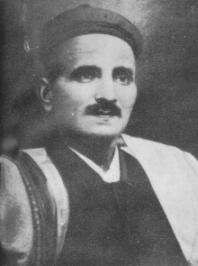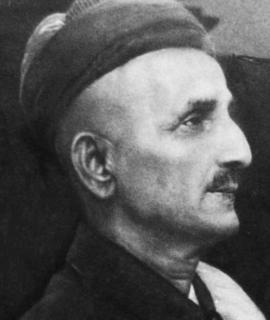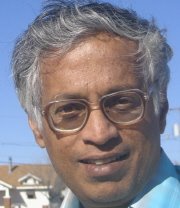Dr. K.Rohiniprasad


Like western music, Indian classical music needs to have a good notation system. In this effort, Vishnu Narayan Bhatkhande (1860-1936), the father of modern Hindustani music dedicated his whole life to research in ancient and contemporary music. A true crusader and a renaissance man, he appeared just as the age of mass musical education was dawning in India.
Bhatkhande’s father worked as a temple accountant and lived in Walkeshwar, Bombay. Vishnu acquired his sweet voice and initial training from his mother, singing morning prayers in his school. Since respectable families did not pursue music in those days he learnt the flute, sitar and vocal music on the sly from gurus like Vallabhdas, Jairajgir, Raojibua Belbagkar, Ali Husain Khan, Vilayat Hussain Khan and others.
Keeping the promise given to his father not to take to music as a profession, Bhatkhande completed his B.A. and LL.B from Elphinstone College. He practiced criminal law at the Bombay and Karachi High Courts but the death of his wife and daughter turned him towards music. He taught law to students, sometimes composing songs on the Acts to make learning them easy!
Appointed a trustee for the property of a wealthy family in Bombay, Bhatkhande had regular income. He attended recitals by contemporary luminaries but noticed that musicians did not follow old classical theories of music even as they appeared to follow tradition. He felt it necessary to systematize these traditions and build a scientific theory of modern Hindustani music based on the prevailing practice. He began studying old musical texts with enthusiasm but found several ambiguities in them. In 1904 he visited Madras, Tanjore, Madurai and other places and met prominent local musicians. He studied ancient works like Chaturdandi Prakasika, Swara-mela-kala-nidhi and others in Sanskrit, Telugu, Bengali, Gujarati, Urdu, German, Greek and English with the help of scholars and interpreters and printed them in Bombay for sale at nominal prices.
Touring Nagpur, Calcutta, Hyderabad, Vijayanagar, Puri, Allahabad, Banaras, Agra, Delhi, Mathura, Jaipur, Bikaner and other places he met and interviewed reputed musicians. He collected and arranged the enormous amount of information and yet found discrepancies between the old texts by Bharata and Sharngadeva and prevalent practices. So Bhatkhande gave up his legal practice and devoted the rest of his life in the service of music. He went ahead and published his own books in Sanskrit, Marathi, Hindi and English including Abhinavaragamanjari, Abhinavatalamanjari, Lakshya Sangeetam, Hindustani Sangeet Paddhati, the six Kramik volumes, the Swara-malika and Geet Malika series, Grantha sangeetam, Bhavi Sangeetam, A Short Historical Survey of Music, Philosophy of Music during 1909-32 comprising over 2000 Dhrupads, Dhamars, Khayals, Sadras, Taraanas, Chaturangs and Thumris from various gharanas and some compositions of his own. He classified 180 ragas into ten thaats.
With the help of the Maharaja, Bhatkhande convened the first All-India Music Conference in Baroda in 1916 in which famous musicians from all over the country participated and scholarly papers were presented. At the second conference at Delhi, his infinite patience and sincerity convinced the participating musicians to achieve a common understanding and the rules of ragas could be laid down. Bhatkhande developed a practical system of writing music by means of symbols by which one could learn music without a teacher. He set up Sangeeta Maha Vidyalaya in Baroda where music teachers were trained. He opened Colleges of Music in Gwalior, and Lucknow (headed by his student Ratanjankar). Like his contemporary Paluskar, his efforts democratized music education and produced several musicians. Suffering a stroke in 1933, Bhatkhande passed away in Bombay in 1936. The government released a postage stamp in his name. His notation system is in popular use today.




0 Comments:
Post a Comment
<< Home